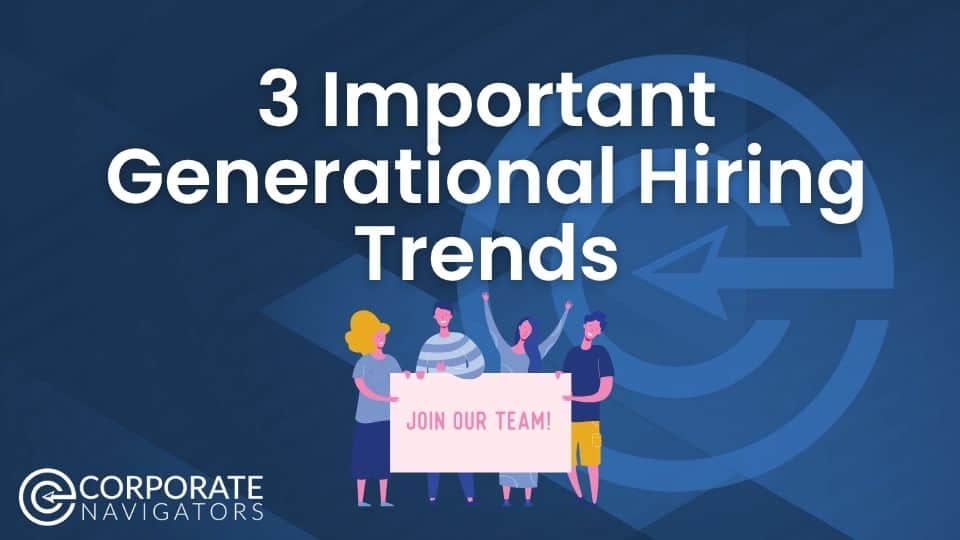
Table of Contents: 3 Generational Hiring Trends
Gen Z: A Growing Generation of Young Professionals
By 2026, Gen Z is expected to make up approximately 27-30% of the global workforce, Millennials 35%, Gen X 22%, and Boomers less than 10%. This number will decline daily as Boomers retire at 10k a day in the U.S. Understanding which generation the majority of workers belong to can help employers make the best recruitment and branding decisions to attract top talent.
In this article, we will explore the differences between generations regarding 3 key recruitment trends:
- Brand Image on Social Media
- Remote Work Preferences
- DEI Focus
Generational Composition in Workforce by 2026
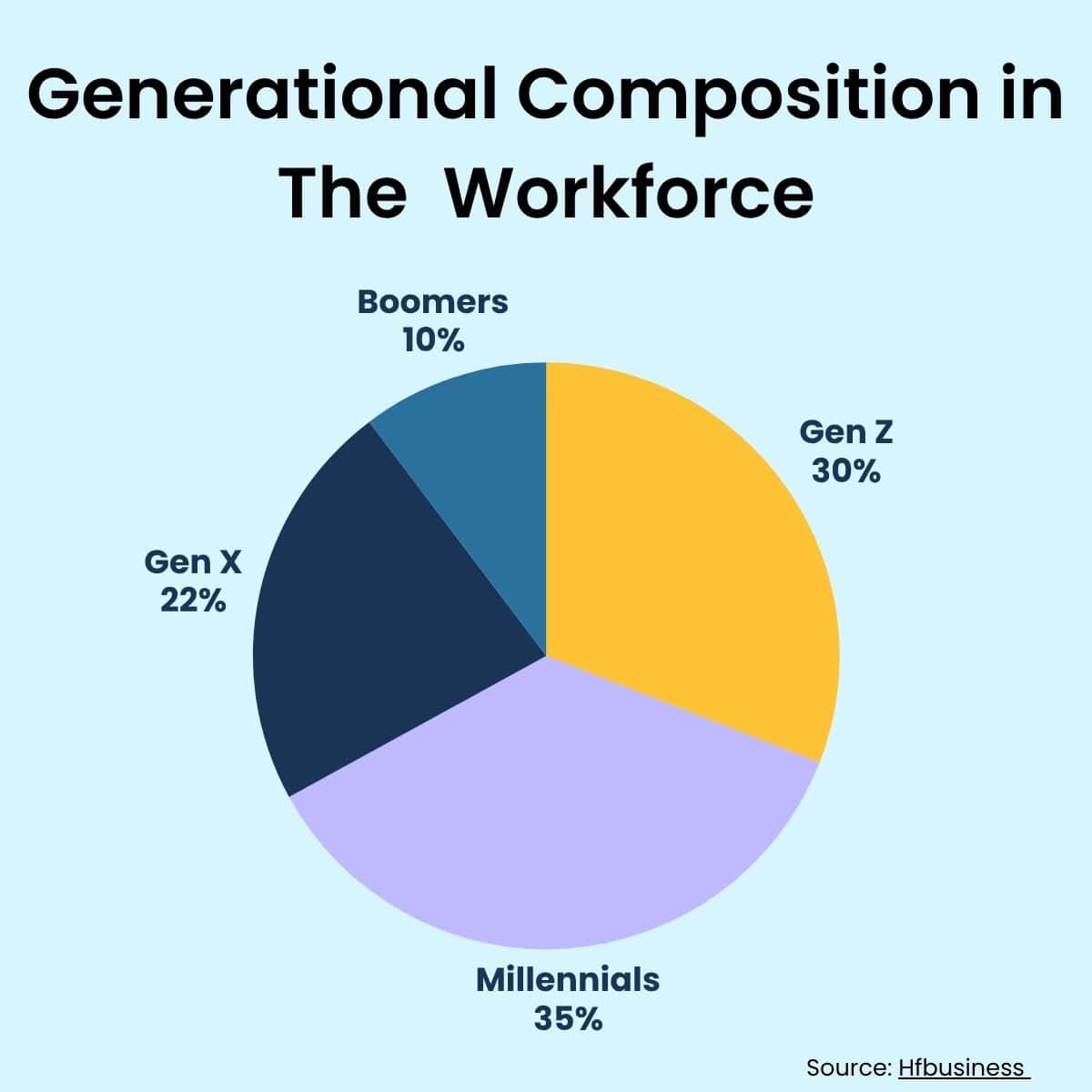
Gen Z Leads Generational Workplace Expectation Shift
Gen Z, the first digitally native generation, is expanding its workforce presence with new expectations (e.g. a McKinsey study notes 77% of Gen Z prioritize work-life balance) and digital-native skills.
The late 2020s will require employers to adapt to these generational shifts, offering greater flexibility, purpose, and development to attract emerging talent while also transferring knowledge from retiring workers.
The war for talent is becoming a long game, where workforce planning and branding will be as crucial as immediate recruiting tactics.
Trend #1: Brand Image on Social Media
Knowing where the future is heading with recruitment allows companies to prioritize their initiatives to attract the kind of talent they want and need. To plan for the future, it’s imperative to create a work environment with policies and initiatives that are conducive to the ever evolving workforce.
As technology only gets more integrated into daily life, social media has become a strong influencer of candidate decisions. With candidates more selective, companies are emphasizing their employer brand and culture.
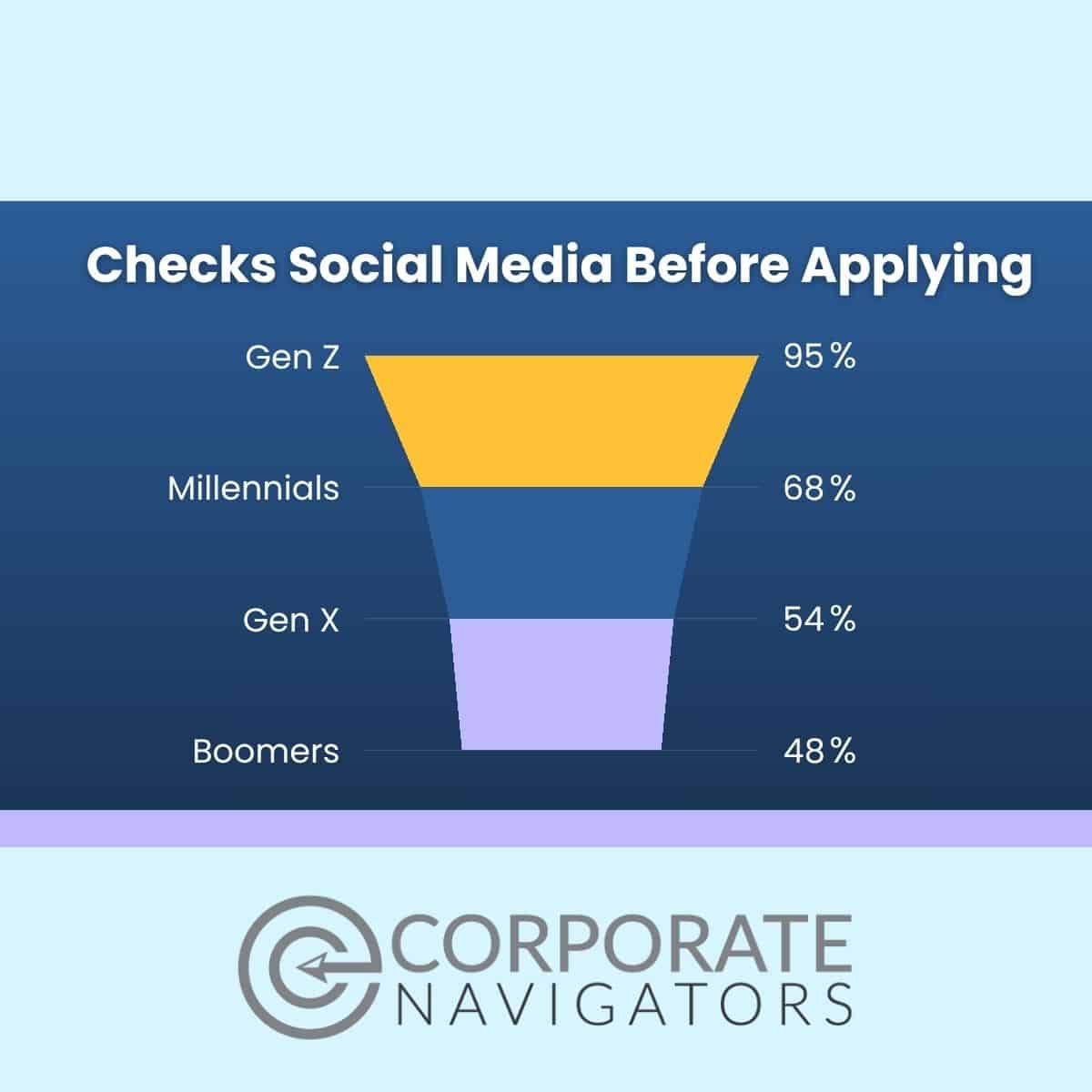
Gen Z and Millennials are particularly drawn to employers with a positive culture and social values, so those aspects will feature prominently in recruitment marketing.
For example, employers known for innovative projects are 11% more likely to achieve quality hires. In 2025, organizations are highlighting career development, mission, and culture in recruiting pitches to stand out to talent that has plenty of options.
That said, statistics clearly correlate a stronger social media impact on younger candidates. Gen Z, the first digitally-native generation, almost unanimously checks a company’s social media account before applying for a job. Millennials aren’t too far behind at 68%, while only around half of Gen X and Boomers check a company’s social media account before applying.
Trend #2: Flex work
Across generations, there are different preferences regarding work-life balance and how they prefer to work. While work-life balance is a big deal and a major focus of Gen Z, this generation surprisingly prefers more in-person collaboration than Millennials. Specifically, only 27% of Gen Z prefers fully remote work, as opposed to 49% of Millennials, 40% of Gen X, and 40% of Boomers, according to FlexJobs’ Work Insights Survey.
While 77% of Gen Z job seekers prioritize remote work opportunities when seeking a role, this is typically with hybrid work in mind. Why? Because the younger Gen Z values social connections and entry-level learning opportunities more than Millennials and Gen X, who are more likely to be juggling work and childcare.
As a whole, 95% of total working professionals across all generations say they want remote work in some form—whether it’s hybrid or fully remote. The verdict is in. Even if it’s hybrid, having some kind of flex work option is attractive to all generations, with Millennials being the most attuned to it.
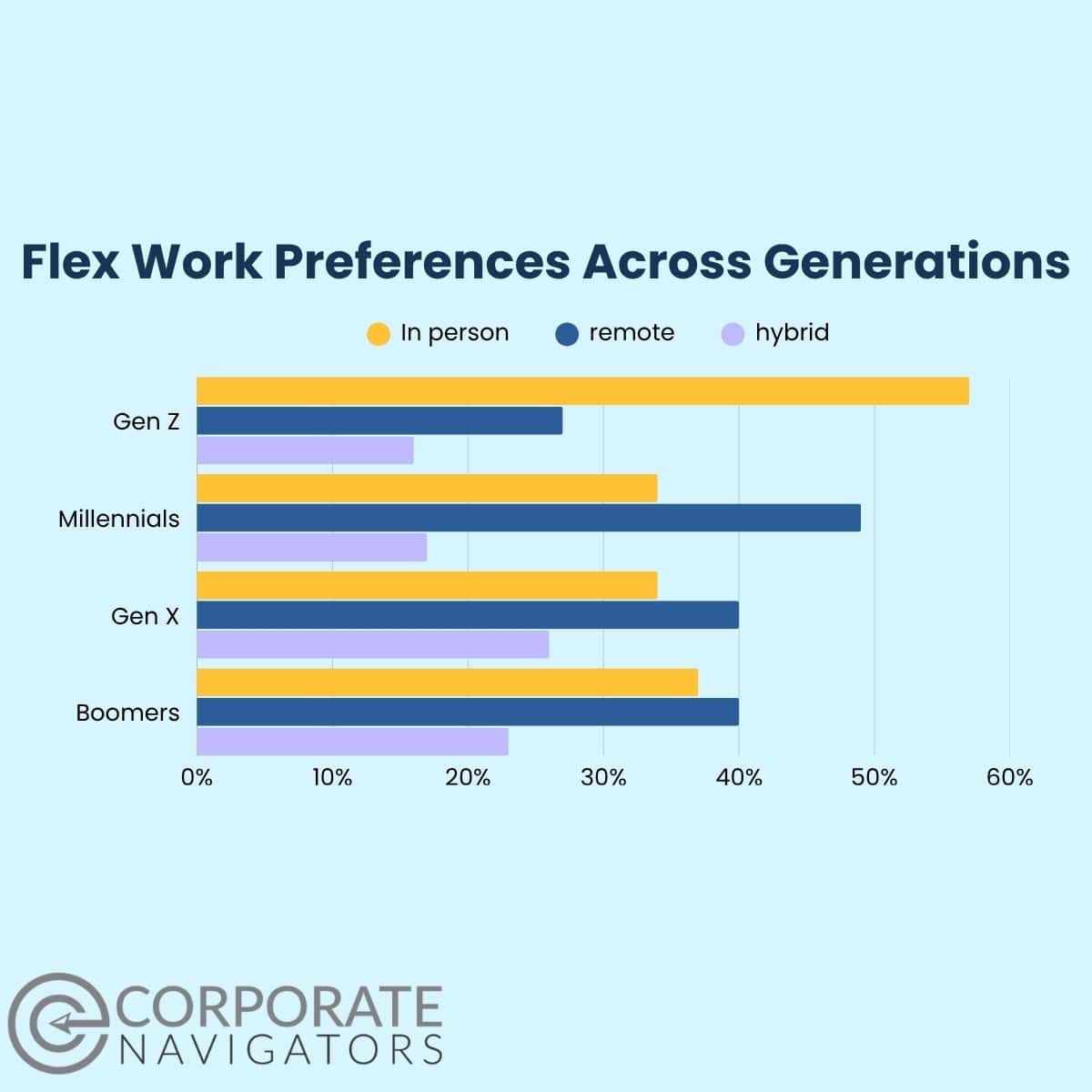
Trend #3: DEI, Diversity, Equity, and Inclusion
Gen Z is the most diverse generation yet, with approximately 50-52% of Gen Zers identifying as white, compared to 61% of Millennials, 70% of Gen Xers, and 82% of Baby Boomers. Therefore, it’s no surprise that 48% of Gen Z is more likely to apply if a company highlighted DEI on social media.
However, this doesn’t mean that diversity isn’t important to older generations as well. According to a recent DEI Report, 99% of Gen Z respondents reported that workplace DEI is important, with 87% saying it is very important. 77% of Millennials and Gen Z workers prioritize DEI, and 67% of Gen X and older workers prioritize DEI in the workplace.
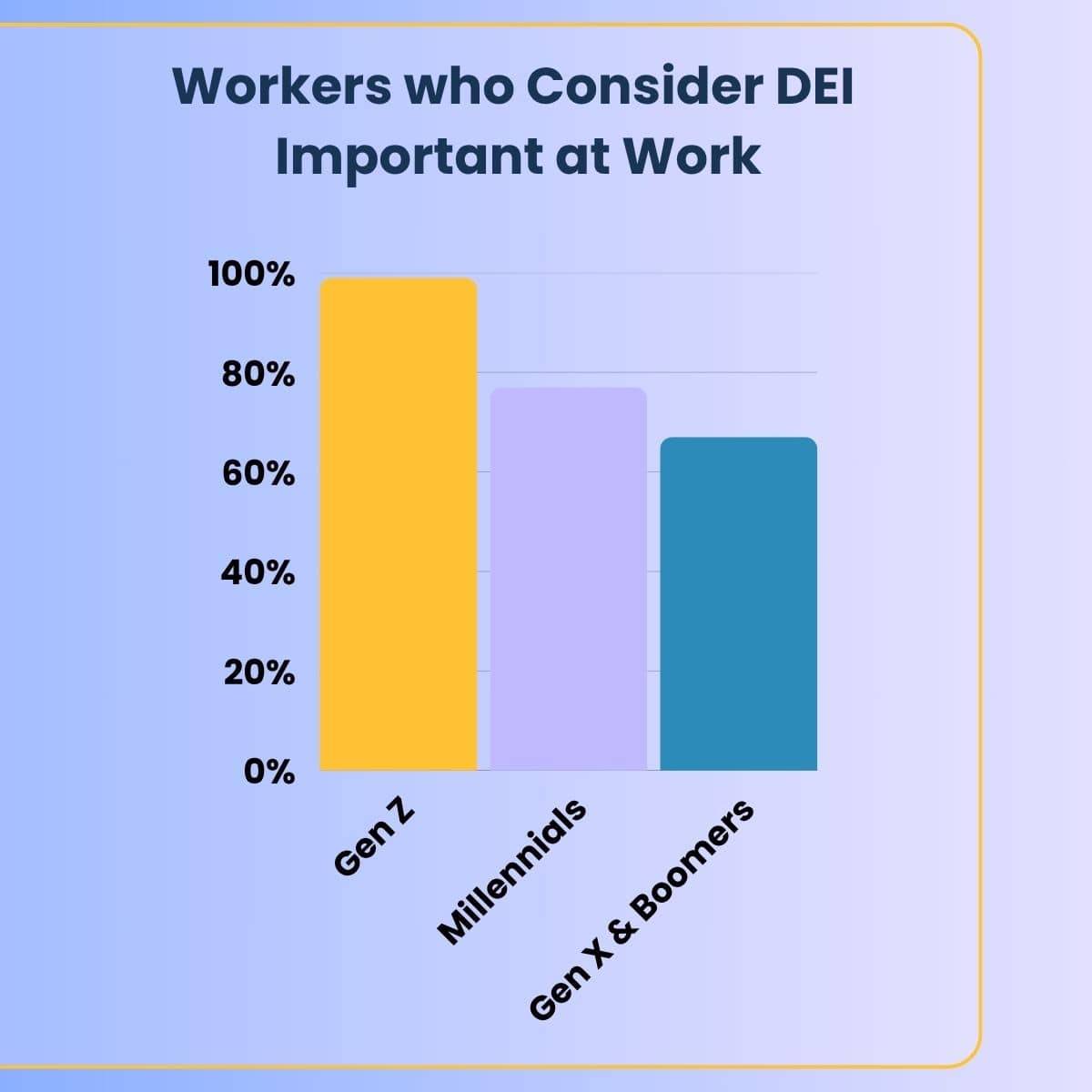
Additional Stats on DEI
86% of Gen Z job seekers cite a company’s commitment to diversity as an important factor in deciding whether or not to accept an offer.
More than two-thirds of Gen Z would be reluctant to accept an offer if they didn’t meet any underrepresented employees during the interview process.
Once hired, 78% would consider finding a new job if they found their employer wasn’t committed to diversity in the workplace.
Stay on Top of Hiring Trends for Better Recruitment
As Gen Z rapidly becomes a dominant force in the workforce, hiring trends evolve. Now more than ever, Gen Z’s values and expectations are reshaping how organizations approach recruitment, branding, and workplace culture. Companies that adapt to these generational shifts. By cultivating a strong social media presence, offering flexible work options, and prioritizing DEI, will be best positioned to attract and retain top talent.
The future of work will be defined by these 3 hiring trends, which require employers to embrace inclusivity, adaptability, and purpose-driven leadership. Employers who recognize and act on these trends will not only win the war for talent but also build resilient, innovative teams ready for the challenges of tomorrow.
Is your organization ready to engage the next generation of professionals? Contact Corporate Navigators today to discover how we can help you future-proof your talent strategy and build a workplace where Gen Z—and every generation—can thrive. Let’s shape the future of work, together.


